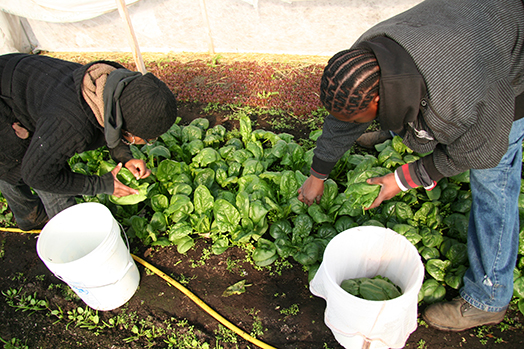2015 Special Recognition: The Ex-Offender Workforce Entrepreneur Project
A pressing issue facing many communities across the country is the reintegration of those recently released from prison back into society. Offenders reentering the community after incarceration face a number of challenges, including unemployment, lack of housing, unresolved substance addictions, mental illness, and medical problems. Often times, these challenges are compounded, exacerbating the difficulty of re-entry.
The key to future success for ex-offenders is stable employment; however, the current state of the job market does not make it easy for those with criminal histories to find work. In 2011, the Dismas Family Farm was established to confront this problem. Located in Oakham, Massachusetts, Dismas is a 35-acre working farm that houses ex-offenders in exchange for their participation in the Workforce Entrepreneur Project. Dismas residents operate all aspects of the farm, from crop rotation to business management; the revenue is used to sustain farm operations. The program combines a family-style environment with accountability measures for former prisoners—a proactive approach towards recovery and workforce integration.
The program utilizes a morning-to-night curriculum for former prisoners and the homeless. Reentry activities include group and individual therapy, drug and alcohol rehabilitation, healthcare access, anger management, and parenting classes. In addition to the treatment program, residents are required to actively engage in agricultural work, learning skills such as crop rotation, animal care, hay operations, and farmers’ market management. Residents also maintain the farm’s subscription service, where farm customers make a donation in exchange for a regular delivery of farm products including vegetables, meat, and eggs. The woodshop educates residents in wood craftsmanship, giving them a skill with which they can produce and sell their own products.
Dismas Farm has proved to be successful in stabilizing ex-offenders during the difficult and risky transition period. The 5-year recidivism rate is 50% lower than the Massachusetts state average. With an impressive record of success over just four years, this innovative initiative will continue to provide residents the opportunity to reestablish themselves as productive members of the workforce through transferable job skills and entrepreneurial experience.




Leave a Reply
Want to join the discussion?Feel free to contribute!